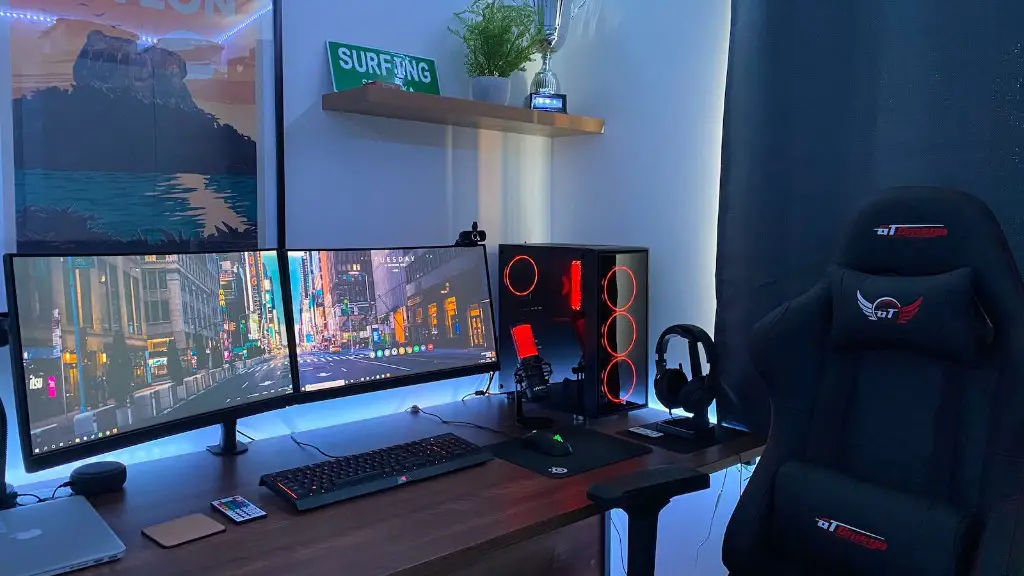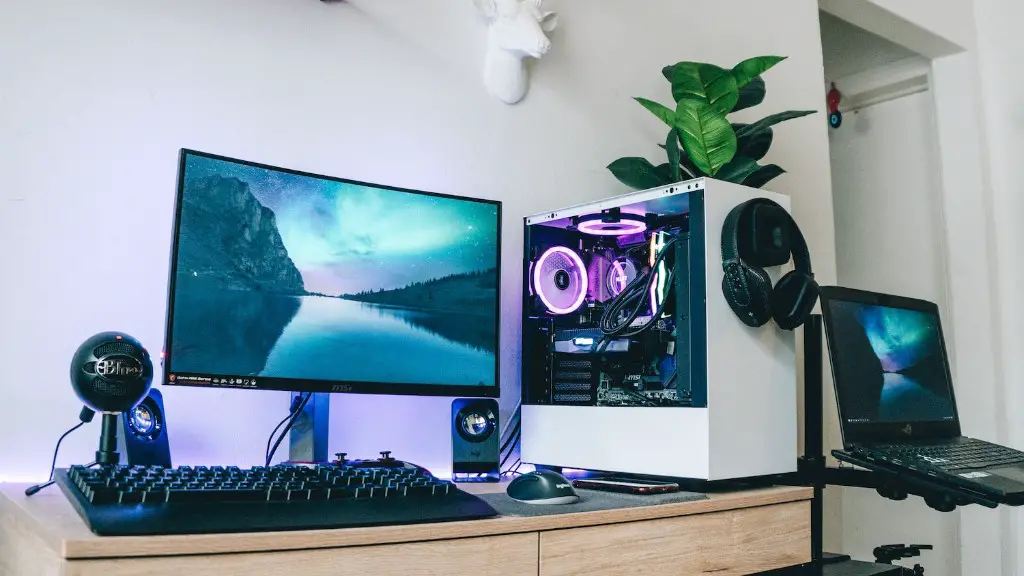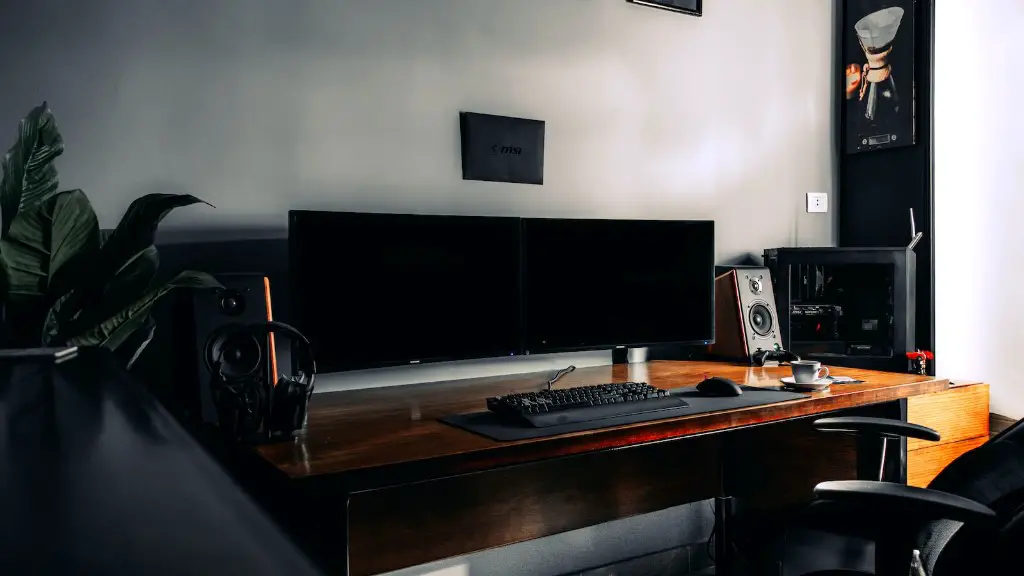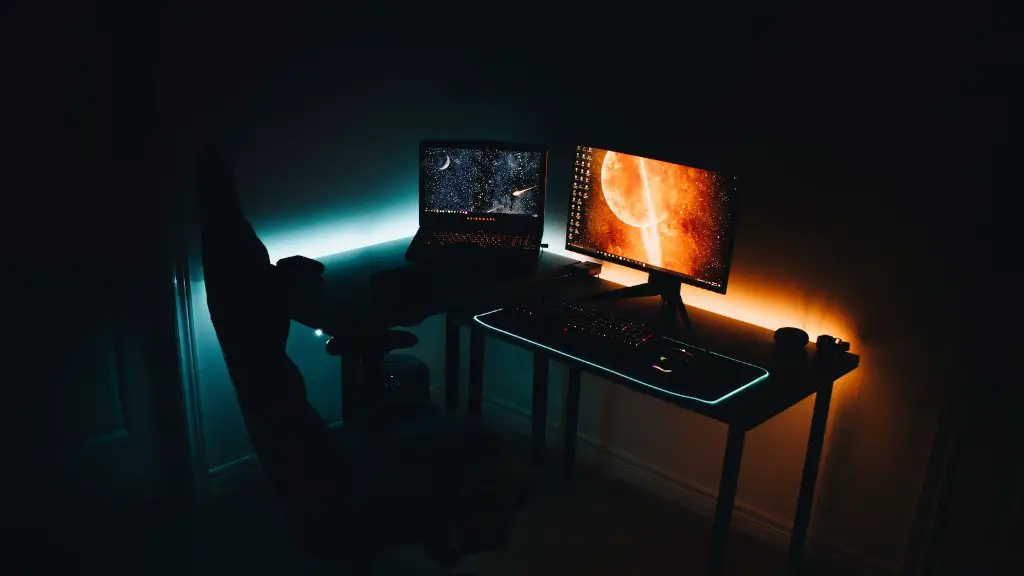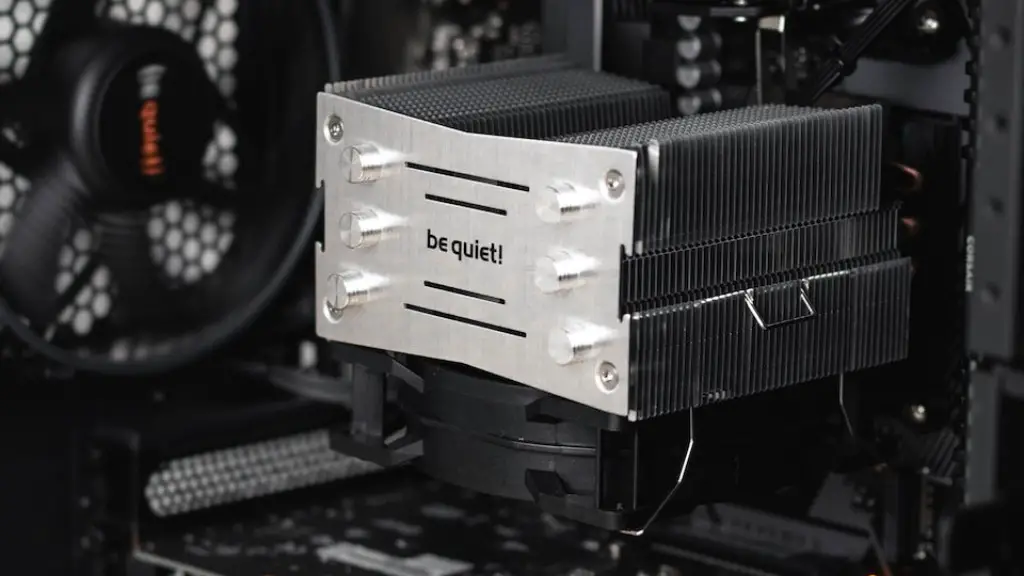As the demand for more powerful video game experiences grows, so too does the need for additional storage on gaming PCs. The question to ask then is, just how much storage is required for an optimal gaming setup? Well, the answer can depend on a variety of factors, such as the type of games you play and the size of your game library.
Typically, an entry-level setup will require a minimum of a 1TB HDD, with the majority of AAA titles consuming around 50GB of space per game. That’s 1,000 (GB) Gigabytes divided by 50 (GB) Gigabytes per game. This means a 1TB HDD will be capable of storing 20 large-sized games simultaneously.
For PC gamers who are serious about their hobby and afraid of running low on capacity, one may want to go for a larger HDD such as a 2TB or 4TB model. This will ensure you always have room for more games on your gaming PC.
Alternatively, one can take a hybrid route and combine both an HDD and an SSD, the latter of which can handle more demanding tasks. An SSD can be used for your operating system and critical programs, while an HDD is better suited for storing game files.
An SSD also offers much faster loading speeds, as well as better overall performance than an HDD, so it really comes down to personal preference. Ultimately, the choice usually boils down to budget, as hard drives tend to be much cheaper than SSDs.
Overall, the amount of storage needed for a gaming PC will depend on the individual’s gaming habits and budget. That said, it’s best to start off with at least a 1TB HDD and go up from there if required. And when factoring in additional components like an SSD, RGB lighting and peripherals, stay mindful of your overall budget for optimal results.
Types of Hard Drives
No matter the size of your gaming library, the type of storage you choose will play a key role in your gaming PC’s performance. The two main types of storage available are Hard Disk Drives (HDD) and Solid State Drives (SSD).
HDDs are the more traditional route and are the go-to for most gamers. They are much cheaper, offer greater storage capacities, and make for easy access to bulk game files. But HDDs are bulkier, generate more heat as they run, and are considerably slower than SSDs when it comes to loading games and applications.
SSDs, on the other hand, offer a much faster and quieter way to load your games and programs. An SSD is lightweight, durable, and has a longer lifespan compared to an HDD. As the saying goes, you get what you pay for – but they do come with a greater price tag than an HDD equivalent.
Of course, some gaming PCs use a combination of SSD and HDD, which can provide the best of both worlds. You get the massive storage space of an HDD and the fast loading speed of an SSD for a more balanced experience. And there are various gaming PC builds on the market tailored to specific gaming needs, from casual gamers to power users.
The choice of storage type ultimately depends on the user’s budget, what type of gaming experience they are seeking, and the size of their game library. With that in mind, there’s no clear answer to the question of how much storage is needed for a gaming PC – it largely depends on the requirements and expectations of the user.
Advantages of an SSD vs HDD
When deciding on a new storage solution for a gaming PC, and HDD and an SSD may be considered. As previously mentioned, both have their pros and cons and serve different purposes.
HDDs are the traditional type of hard drives most people are familiar with. They offer large storage capacities, easy access, and are much cheaper than SSDs. They are also bulkier, generate more heat, and are slower compared to SSDs.
SSDs, while more expensive, provide the fastest type of storage available. Because they don’t contain any mechanical parts, they are able to read and write data much faster. And with no moving parts, they don’t produce any noise and are incredibly reliable.
SSDs also require less power than HDDs and will use less energy, resulting in a higher battery life for laptops. However, SSDs don’t offer the same capacity as HDDs and are best suited for storing your operating system and essential programs.
As such, it’s often a good idea to have a combination of both SSD and HDD in a gaming PC setup, with the former used for OS and other critical programs, and the latter for game files and libraries.
Storage Capacity Effects
Storage capacity is the amount of data that can be stored on the device. This is often determined by the size of the hard drive, as well as other components such as memory and RAM.
The larger the drive size, the more data can be stored. This is especially important for gamers, as having more storage space means more games and apps can be downloaded.
Also, installing too many games and apps can hinder performance, as the system will have to load more data at once. This can cause slow loading times, stuttering and lagging or even crashes.
On the other hand, having the right amount of storage space can help to improve the gaming experience. Games can load faster, applications run smoother, and users can have an improved gaming experience overall.
As such, when considering storage options for your gaming PC, always keep your library size in mind. You don’t want to end up stuck with too little storage space or too much.
Types of Storage Solutions for Gaming PCs
Choosing the best storage solutions for a gaming PC is more than just crunching numbers. There are a few key factors to consider when selecting the right type of drive for optimal performance.
The two main types of storage solutions used in gaming PCs are HDDs and SSDs. HDDs offer larger storage capacities, are cheaper, and are better for bulk storage. SSDs, on the other hand, are faster, quieter, and more reliable.
In addition, some gaming PCs offer a hybrid solution of both HDD and SSD, taking advantage of both types of drives. This allows for the best of both worlds, providing the larger capacity of an HDD with the speed of an SSD.
Finally, there are also external storage solutions such as USB flash drives, optical drives, and cloud storage which can be used to transfer data between computers.
Once again, the choice of storage solutions for gaming PCs will largely depend on the user’s budget, gaming habits, and library size. All of these factors need to be taken into consideration before deciding on the right type of storage drive.
